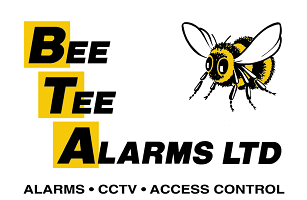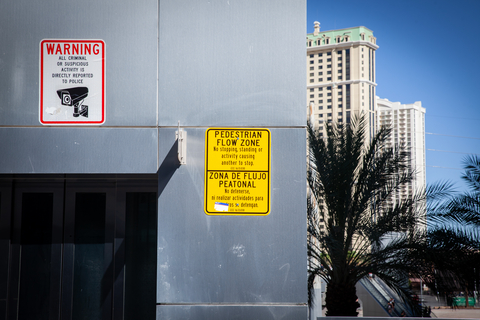The installation of domestic CCTV systems has become increasingly popular as homeowners aim to protect their property and assets amid rising keyless car thefts in the UK. However, while these systems can be effective in deterring crime and monitoring property, it is crucial to understand the legal and practical aspects of their use, particularly concerning privacy laws and neighbour relations. It is also important to undersrand the aspects of permission related to the same.
Understanding CCTV Regulations in the UK
In the UK, the use of CCTV is governed by several laws, primarily the General Data Protection Regulation (GDPR) and the Data Protection Act 2018 (DPA). These regulations apply when CCTV systems capture images or audio of individuals outside the boundaries of private property, such as neighbours’ gardens or public areas. Homeowners must ensure they comply with these laws to avoid potential legal repercussions.
Key Responsibilities for CCTV Owners
- Purpose and Necessity: Homeowners should clearly define why they are installing a CCTV system. The primary purpose should be to protect personal property from crime or anti-social behaviour.
- Minimising Intrusion: Cameras should be positioned to capture only necessary areas, ideally focusing solely on the owner’s property. If capturing external areas is unavoidable, steps must be taken to minimise intrusion into neighbours’ privacy.
- Transparency: It is advisable to inform neighbours about the installation of CCTV systems. This can be done through direct communication or by placing visible signage indicating that recording is taking place.
- Data Protection Compliance: Homeowners must adhere to data protection principles, including:
- Limiting footage collection to what is necessary.
- Storing recordings securely and ensuring access is restricted.
- Regularly deleting footage that is no longer needed.
- Responding appropriately to requests for access to footage from individuals recorded.
- Maintaining Accurate Records: Ensure that the date and time settings on the CCTV system are correct, and regularly check that there is sufficient storage space for recordings.
Practical Considerations for Installing CCTV
Before installing a CCTV system, consider the following practical aspects:
- Camera Placement: Position cameras thoughtfully to avoid capturing images from neighboring properties or public spaces unnecessarily. If this cannot be avoided, consider using privacy filters that obscure non-target areas.
- Recording Needs: Determine whether continuous recording is necessary or if motion-activated recording would suffice. Evaluate whether audio recording is required, as this may increase privacy concerns.
- Alternative Security Measures: Combine CCTV with other methods like improved lighting, secure locking systems, and video doorbells to create a comprehensive approach to home security.
Dealing with Privacy Concerns
Privacy concerns are common among neighbours when one household installs a CCTV system. Here are steps to address these issues:
- Open Communication: Engage with neighbours about your reasons for installing CCTV. Many homeowners install these systems for peace of mind and may not intend to infringe on the privacy of others.
- Adjusting Camera Angles: If a neighbour expresses discomfort about being recorded, consider repositioning cameras to reduce their field of view beyond your property boundary.
- Using Filters: Implement privacy filters or masking techniques that blur or obscure areas outside your property boundary.
Rights of Individuals Recorded by CCTV
Individuals recorded by domestic CCTV have specific rights under data protection laws:
- Subject Access Requests (SARs): the SARs guidelines mention that individuals can request access to footage where they appear. Homeowners are required to respond within one month.
- Right to Erasure: Individuals can request that footage featuring them be deleted if it is no longer necessary for its original purpose.
- Right to Object: Neighbours have the right to object to being recorded. Homeowners must consider these objections seriously and provide justifications if they choose to continue recording.
Steps for Responsible Operation of Domestic CCTV
To ensure compliance with data protection laws and maintain good neighbourly relations, follow these steps:
- Install Signage: Clearly display signs indicating that CCTV is in operation on your property.
- Regularly Review Footage: Check recordings periodically and delete any footage that is no longer relevant or necessary for security purposes.
- Secure Storage: Keep recorded footage secure from unauthorised access and ensure it is only accessible by those who need it for legitimate purposes.
- Educate Yourself: Familiarise yourself with your responsibilities as a CCTV operator by reviewing guidance from regulatory bodies such as the Information Commissioner’s Office (ICO).
- Seek Advice When Needed: If uncertain about any aspect of operating your CCTV system legally and ethically, consult with experts or contact the ICO for guidance.
Handling Complaints About Domestic CCTV
If a neighbour raises concerns about your use of CCTV:
- Listen Actively: Take their concerns seriously and engage in dialogue about their worries regarding privacy invasion.
- Assess Your Setup: Evaluate whether adjustments can be made to alleviate concerns without compromising your security needs.
- Mediation Options: If discussions do not resolve disputes, consider mediation services or involve local authorities if harassment occurs due to excessive surveillance practices.
Domestic CCTV systems can significantly enhance home security; however, they come with responsibilities that must be managed carefully. By understanding and adhering to legal requirements while fostering open communication with neighbours, homeowners can effectively balance their security needs with respect for the privacy rights of others. Following these guidelines will not only help in protecting your property but also contribute positively to community relations, ensuring everyone feels safe and respected in their environment.
Ensure supreme security with Bee Tee Alarms
Ensure your home security is top-notch with Bee Tee Alarms! It’s essential to regularly check your CCTV cameras for optimal performance. Our maintenance services guarantee that your system operates flawlessly, providing peace of mind. Don’t wait until it’s too late—request a callback today to discuss your needs or contact us directly for expert assistance. Our team is ready to help you enhance your security setup. Protect your property and loved ones by ensuring your CCTV is always in perfect working order. Reach out now and take the first step towards a safer home!




